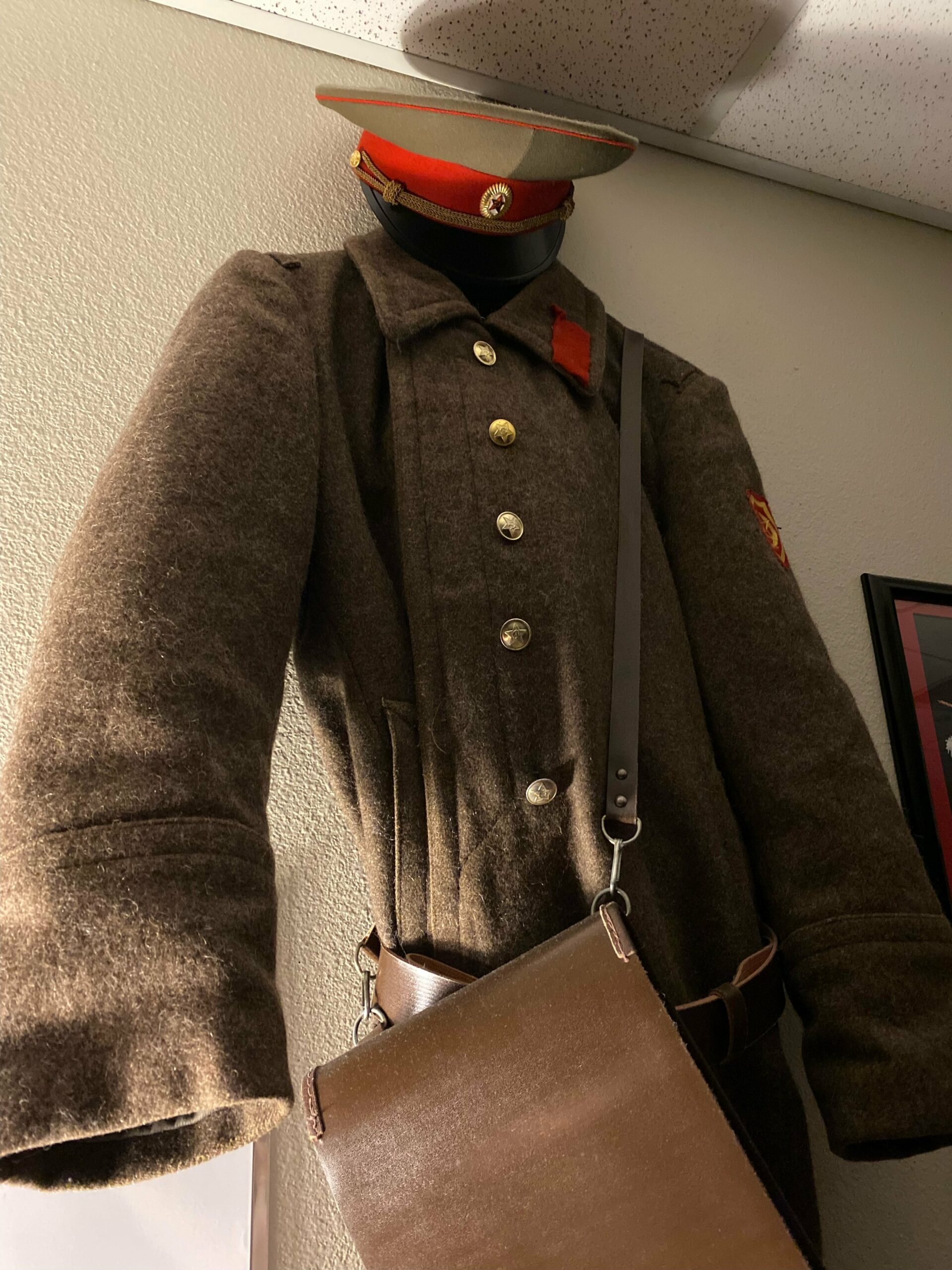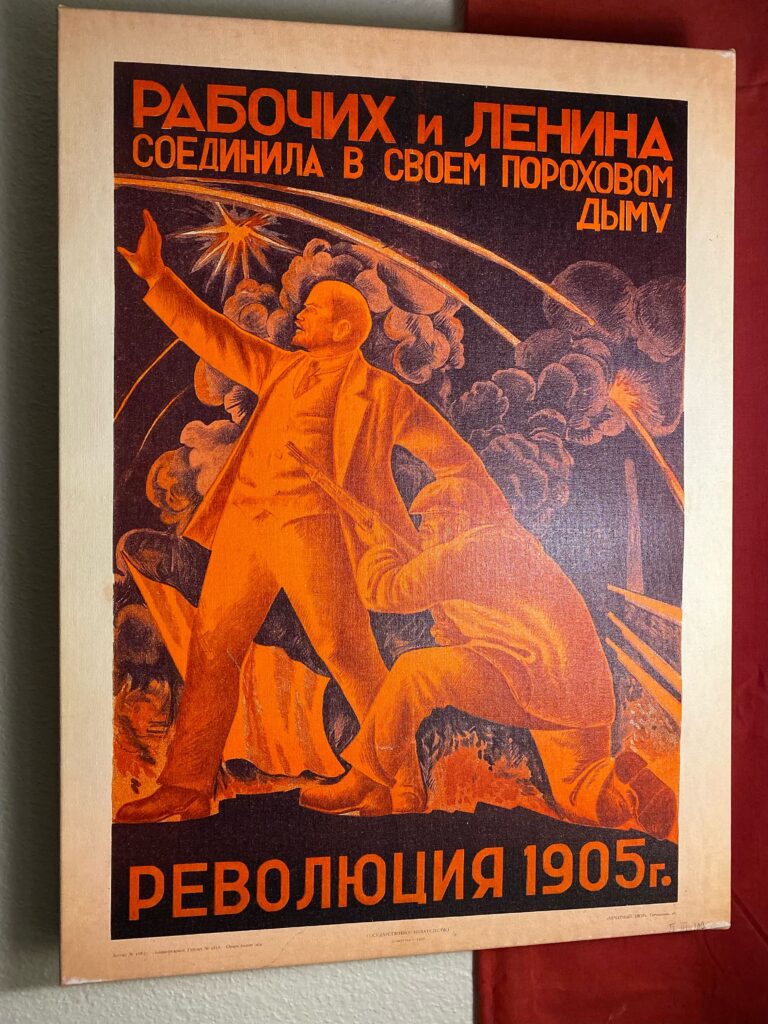“It’s always what life is, it’s always what history is, it’s always what any job is; the greatness of everything is bound up in the greatness of people. We forget that, we get into processes, paradigms, programs, and how we can do things better and better. But the core is people, how we motivate people, how we listen to people, and how we encourage them,” said Bruce Lovesmith, history teacher, ordained preacher and people reacher. “I see myself as an encourager, an exhorter, sharing with people, being kind and loving to people, listening to people. I want to do my best to encourage people.”
“I grew up in an abusive home,” Bruce said. He recalled a time when things got so bad he had to get away. “I looked at the sky and said, ‘God, I don’t have a right to ask, my story is bad, and I know there are worse, but God, would you be my Father? Because I don’t know what to do. My father is so evil, he hurts me and my mom. God, I need you.’ When I asked God to be my Father, literally, I felt like I was in the palm of His hand.” With the firm assurance that God would be his Father, God began to reveal that not all men were mean. “I just started watching nice people, godly people, good people and imitating them. I said, ‘I’m going to start adopting some of their habits. I’m going to fake it until I make it. I’m just going to do it until it becomes a part of me.”
One worth following was Bruce’s junior high foreign culture teacher. He was an old-school lecturer who had a wonderful way of telling engaging stories that drew his students in and held them spell-bound. “He was just doing what he did really well, and that was telling the story in a theatrical style. He could paint it in such a way that everybody was engaged. Everybody was leaning in,” Bruce recalled. “My mother was a teacher. I told myself, ‘When I grow up, one thing I’m never, ever going to be is a teacher,’ and that’s exactly what I am today. Be careful what you say you’re not going to do.”
Bruce has been in the educational field for 19 years, not counting the time he spent pursuing his degrees, which include a bachelors in foregin service from Baylor, a masters in education from University of Central Texas, and a Master of Divinity at Southwestern Baptist Theological Seminary. He taught history and geography at the middle school and high school levels, and was a middle school and high school assistant principal, and a high school principal. He earned Teacher of the Year, Technology Innovator of the Year, and was a Texas Beginning Educator Support System (or TxBESS) Mentor Program Trainer of Trainers. As a football, basketball and track coach, Bruce led his teams to district championships. He currently teaches Advanced Placement World History classes.
Bruce’s love for history, foreign culture, Jesus and people led him into Christian missions and ministry. On a mission trip to the Union of Soviet Socialist Republics (USSR), the year before it fell, Bruce was part of a covert team of evangelists in a land where religion was outlawed. He had to sign a martyr’s agreement with the organization that sponsored the event, releasing them from liability if anything happened to him. The trip got off to a rocky start when the team was detained in Moscow, on their way to Kyiv. They knew they were being watched, and they felt underlying tensions in the conversations they had with the people there. They saw poverty, fear and desperation. The people were eager for news from the outside world, for the training and humanitarian aid supplied by the team, and for the message of hope from the gospel. When Bruce turned 18 on the trip, “the Russians threw me a birthday party. Everybody brought what they had. They didn’t have much. They were living life, doing the best they could. This guy brought me his grandpa’s 1960s army gray coat. That’s all he really had of value. This other young man–his grandfather was a backfire bomber pilot–he gave me his granddad’s cap.” These, plus a brown leather satchel that Bruce purchased there, are proudly displayed in his classroom today.
In Victory Park, Kyiv, under the passionate gaze of the towering statue of a woman holding a sword and shield, Bruce began to pray prayers of victory for the city. “I remember that summer, in the park, praying ‘God-sized’ prayers,” he said. “My prayer was that God would grow a movement until the day of the coming of Jesus Christ, that more and more people would come to faith, that scales would fall from their eyes, that people would hear the gospel, and that the message of truth would radiate out of the area. Right now in Kyiv, there are Christian megachurches in a formerly atheistic city, a movement of God in answer to that prayer. Today, there are church missions not just inside Kyiv, but doing work in the foothills and villages of Ukraine, seeing fruits of their labors.” Ukraine currently sends out more missionaries than any other European country.
“I was there in the last year of the Soviet Union, when Ukrainian independence was building. I’ve been thinking about it very powerfully, about what’s happening right now as Russian troops are on the border of Ukraine,” Bruce said. He remembers being accosted by a mounted soldier in the park. “I have a horse breathing on the back of my neck. My friend Uri tells me, ‘Whatever you do, don’t move. When he says that, I stay perfectly still. I feel the horse walk up on my right. The horse has a dirty figure riding on it, with a wicked expression, a grimace, an evil eye, and an AK47 strapped over his shoulder. That guy is a Cossack, the same Cossacks that in WWII put the heads of German soldiers on fence posts to scare Germans as they were retreating.
If those experiences don’t get to you, there’s something wrong with you.”


Bruce cites Pearl S. Buck, “‘If you want to understand today, you have to search yesterday.’ You can’t understand what is happening in the Ukraine and Russia right now if you don’t understand what happened under Peter the Great and Catherine the Great.” He also likes to quote Adolf Hilter, “‘How fortunate for governments that the people they administer don’t think.’ Autocrats don’t want people to think. They are bullies, and they don’t want people to know. That’s the power of knowledge, the power of history. We need to think. We need to know when there is a Hitler coming, an autocrat on the stage, or a bully about to take the show. We control the wheel. If we are asleep at the wheel, we get what we get.”
Bruce had the courage to take the wheel and change the course of his personal history. Happily married to Deanna for 27 years, he is a good father to their son and an example for others to follow, as an active leader in his community and church. He engages people in conversation and urges them to think about history, their present life and life to come. Bruce has been involved in various local, national and international missions, including serving as an associate pastor and the leader of the Puppets for Christ online Children’s ministry.
